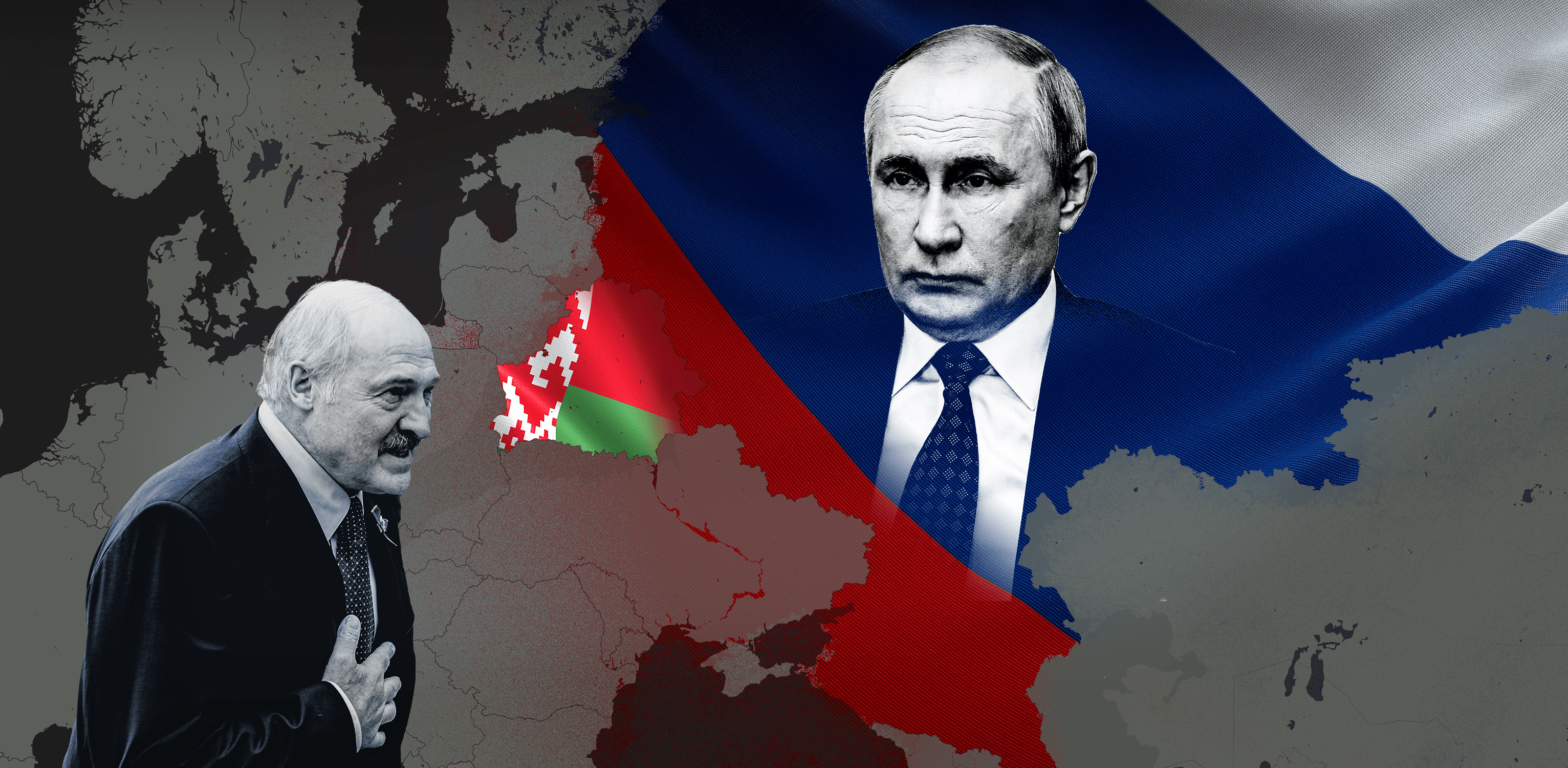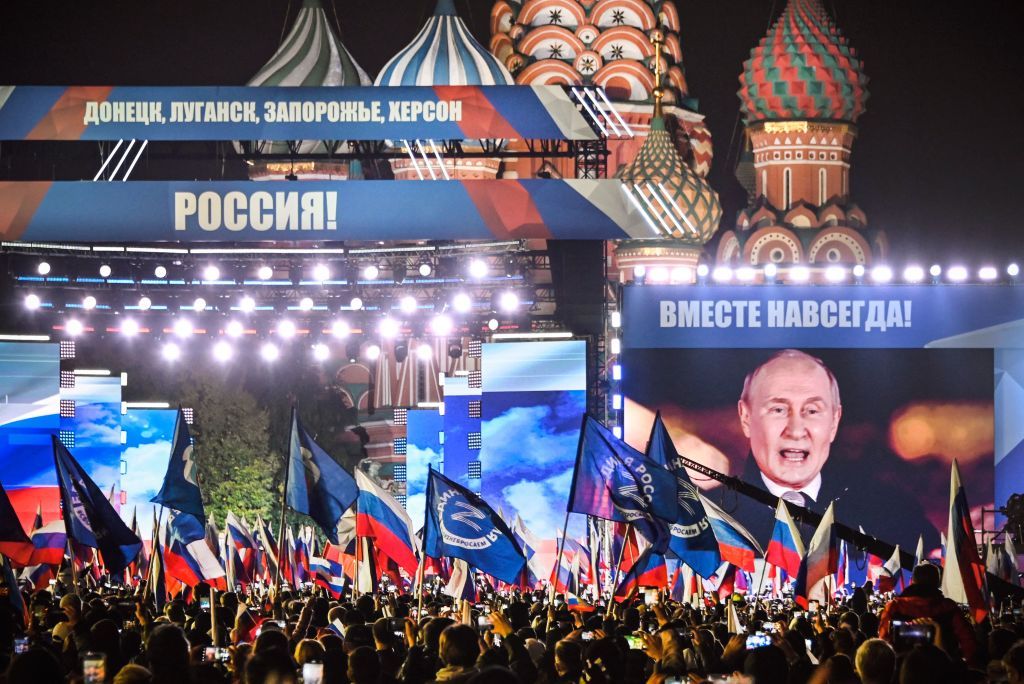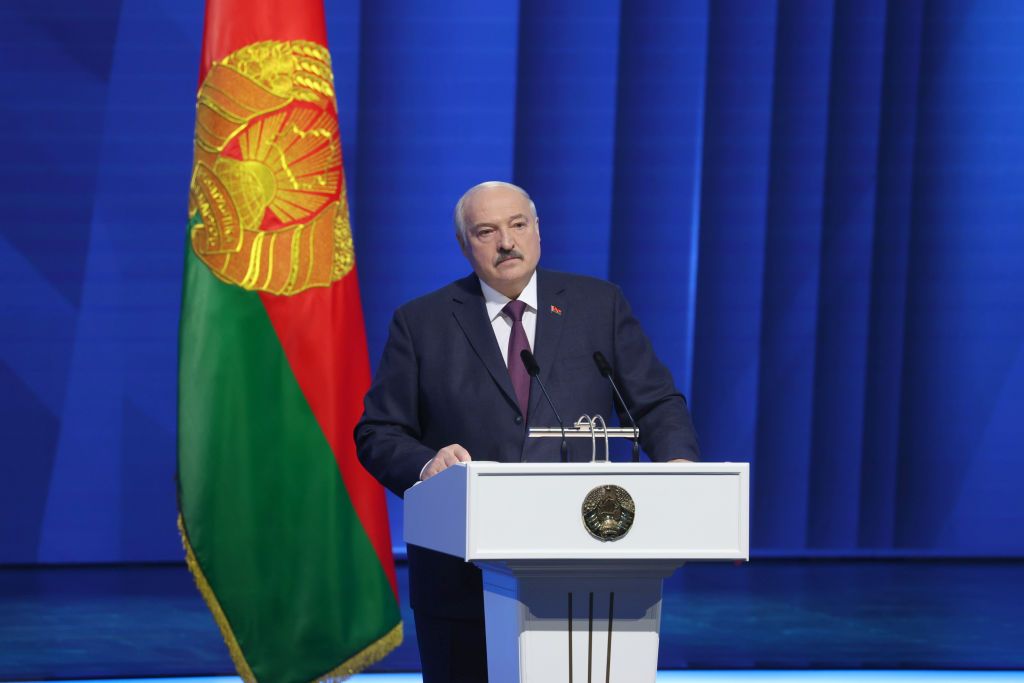Nuclear disarmament
The Spotlight segment provides readers with the historical context of contemporary events in Belarus.
Five years after the collapse of the Soviet Union, Belarus went from having the world's eighth-largest stockpile of nuclear weapons to becoming an entirely non-nuclear state.
As part of the USSR, Belarus had 1,120 warheads distributed between air defense forces, air force, and ground forces.
The country's territory also hosted two missile silo complexes capable of storing intermediate-range ballistic missiles. At least 33 locations in Belarus were designated for repairing, storing, or deploying Soviet nuclear weapons.
Belarus first announced its intention to revoke its nuclear arsenal in 1990 in its declaration of independence from the USSR.
In 1993, Belarus officially became a signatory of the Treaty of Non-Proliferation of Nuclear Weapons, thus becoming the first post-Soviet republic to reject the nuclear weapons it had inherited after the collapse of the Soviet Union.
The U.K., the U.S., and Russia granted Belarus security assurances as part of the Budapest Memorandum, signed on Dec. 5, 1994.
On Nov. 27, 1996, the last train carrying RS-12M Topol ICBMs was dispatched from a town in Belarus's Hrodna Oblast to Russia.
Belarus sought and achieved its non-nuclear status during its brief democratic period.
Alexander Lukashenko, who won arguably the last fair elections in Belarus, repeatedly claimed that giving up Belarus's nuclear weapons was a great mistake.
On March 25, Russian leader Vladimir Putin said his country intends to place tactical nuclear weapons in Belarus for training.
Putin claimed that the agreement had already been made with Belarus dictator Alexander Lukashenko, who the Russian leader claims has "long" been asking for tactical nuclear weapons to be placed in the country's territory.

A Belarusian monitoring group spotted Russian aircraft potentially bringing in new S-300/400 surface-to-air missiles.
Belarus abolishes the use of the Belarusian language and its historical Latin script for transliteration of geographical names in the country, thus further removing language from the public space.
Thirty people accused of damaging a Russian military plane at a Belarusian airfield could face capital punishment, the Belarusian KGB announces.
Belarus drops charges against the leader of the country's Polish minority due to the "absence of a crime," yet is keeping his co-defendant in custody.
Belarusian prosecutors are seeking a longer prison term for Nobel Peace Prize Laureate Ales Bialiatski. A court will hear the state's appeal on April 2.
Lukashenko addresses nation, promises to deploy strategic nuclear weapons 'if necessary'
Belarusian dictator Alexander Lukashenko held an hours-long televised address to parliament in which he called for Ukraine to begin immediate peace talks on Russian terms, named his country's sovereignty as his top concern, and pledged his readiness to accept Russian strategic nuclear weapons, on top of the tactical nuclear warheads that Russia is planning to deploy by July 1.
During his address on March 31, Lukashenko claimed that Belarus will have control over the nuclear weapons on its territory.
"There are no uncontrolled weapons in Belarus and cannot be. Therefore, we here will manage all that we have in Belarus," Lukashenko said.
Transferring control over a nuclear arsenal directly violates the Treaty on Non-Proliferation of Nuclear Weapons, which Russia claims to abide by.
According to Putin, Russia will only station its nuclear arms on allied territory without transferring control, as is the case with American nuclear weapons stationed in Europe.
Lukashenko did not specify how Russian nukes would be controlled but said they would be used if Belarusian territorial integrity was threatened.
Belarus has previously received a Russian Iskander-M tactical missile system capable of launching missiles with nuclear warheads.
On April 4, Russian Defense Minister Shoigu announced that Belarusian crews are undergoing training in operating the systems. He also pointed out that Belarus's fleet of Su-25 aircraft had also been refurbished to carry nuclear weapons.
Earlier, Russian Ambassador to Belarus Boris Gryzlov had claimed that tactical nuclear weapons would be stationed "in proximity to the Western border of the Union State," BelTA quotes.
However, experts doubt that the timeline to finish the nuclear storage facility by July 1 is realistic.
During his speech, Lukashenko reiterated his call to declare a truce in the war against Ukraine "without the right to move, regroup troops, without the right to move weapons, ammunition, manpower, and equipment."
He threatened that Russia would use nuclear weapons should it be threatened with disintegration.
"The aggressor cannot dictate the peace terms. Especially through untrustworthy intermediaries," said Mykhaylo Podolyak, advisor to the head of the Ukrainian President's Office.
"Lukashenko's ceasefire proposal," Podolyak said, "is beneficial only to Putin, who would use it to replenish his resources, launch his military-industrial complex, organize internal provocations in Europe, and put terrorist pressure on Ukraine."
Belarusian Hajun: Russia likely delivering missiles to Belarus
Eleven Russian An-124 Ruslan, heavy transport aircraft, have been spotted at the Belarusian airport in Homiel since March 25, potentially delivering rockets for S-300/400 SAMs, the Belarusian Hajun monitoring group reported.
Between March 25-30, the group observed four incoming An-124s. On March 30, a convoy of military equipment consisting of five tractor trailers without registration plates carried four rockets for S-300/400 surface-to-air missile systems from Homiel to the Russian-controlled Ziabrauka airfield next to the border with Ukraine.
Footage published by Belarusian law enforcement on March 31 from Homiel Airport accidentally revealed two S-400 SAMs stationed there, presumably also brought in by the transport aircraft.
At the beginning of the full-scale Russian invasion of Ukraine, Ziabrauka was used by Russians to indiscriminately launch rockets against Ukraine, resulting in many civilian casualties. The latest footage of the airfield taken in February 2023 showed the airfield with its runway covered in snow, indicating low activity.
The monitoring group has also reported the end of the second rotation of Russian troops in Belarus after training of mobilized personnel and observes no sign of Russian troops massing there.
On the other hand, the closure of the airspace over southern Belarus has been extended until July 1, suggesting that the threat of airstrikes from Belarusian territory persists.

Belarus abolishes Latin transliteration, mandatory use of Belarusian language for geographic locations
Belarus has canceled the decades-long rule of transliteration of geographical names in Belarusian language and its traditional Latin alphabet, according to a resolution by the State Property Committee published on April 4.
The resolution dismisses the instructions developed by the Belarusian Academy of Sciences in 2000 and officially adopted by the UN as a standard for the transliteration of geographical names in Belarus.
One of the reasons cited for the decision was the so-called role of the Latin alphabet as an "imposition of Western liberal values and cultural traditions" and an "overload on the urban environment." Another reason cited was that the Latin alphabet "has been used to Polonize Belarusian along with the imposition of Catholicism."
Belarusians used a historic Latin-based alphabet from the 16th century until the 1930s.
The Union of Belarusian Writers published a report in July 2022 detailing the increasing marginalization of the Belarusian language and the growing use of Russian by the government and in education.
Speaking Belarusian after 2020 is associated with being opposed to the Lukashenko regime and can lead to fines or imprisonment.
Belarusian KGB: 30 accused of Machulishchy sabotage could face capital punishment
The Belarusian KGB is pressing terrorism charges against 30 individuals captured in nationwide raids in the aftermath of an attack on the Russian A-50 early warning and control aircraft on Feb. 26.
The state-controlled TV broadcaster reported on April 3 that the accused could be sentenced to death.
The news aired ahead of a visit by Sergey Naryshkin, director of Russia's foreign intelligence service, to Belarus.
On April 4, Lukashenko admitted that the Belarusian security services missed the attack and claimed that the attack was guided by "foreign intelligence."
Belarus remains the only country in Europe to carry out capital punishment. The use of the death penalty has broadened twice in less than a year.
Two explosions were heard at the Machulishchy air base on the morning of Feb. 26, resulting in damage to a Russian A-50 early warning and control aircraft based at the facility.

Prosecution appeals 'too mild' sentence for Belarusian Nobel Peace Prize Laureate
The prosecution has appealed the sentence handed down against the Belarusian Nobel Peace Prize Laureate Ales Bialiatski, the Viasna Human Rights Group reported based on a letter from Valyantsin Stefanovich, who was also convicted in the case.
On March 3, a Belarusian court convicted human rights activists Bialiatski, Stefanovich, Uladzimir Labkovich, and Dzmitry Salauyou of financing protests.
The human rights activists received up to 10 years in prison and a cumulative fine of roughly $400,000.
Prosecutor Aliaksandr Karol demanded the sentences be increased by another two years and bigger fines.
On April 21, judge Sviatlana Bandarenka of the Minsk City Court will hear the appeal.
Belarus drops charges against Polish activist after two years of detention
The Prosecutor General's Office summoned Polish minority activist Andzelika Borys on April 4 to announce that the charges against her have been dropped due to the "absence of a crime."
Polish-Belarusian activist Andrzej Poczobut, who faces eight years of imprisonment in the same case, remains in custody.
Polish minority activist Andzelika Borys headed the Union of Poles in Belarus and was accused of inciting interethnic hatred as Belarusian authorities blamed Poland for inspiring protests in Belarus.
She spent a year in custody and was transferred to house arrest after her health deteriorated significantly.
Three other defendants in the case, Irena Biernacka, Maria Tiszkowska, and Anna Paniszewa, were released on condition of leaving for Poland in June 2021.
Poland's Foreign Ministry welcomed the release of Borys and called it "the first positive news from Minsk in a long time." Poland's MFA also called for the release of Poczobut and the withdrawal of all charges against him.
"This case has the highest priority for us," the statement reads.
Currently, human rights activists have recognized nearly 1,500 political prisoners in Belarus.














